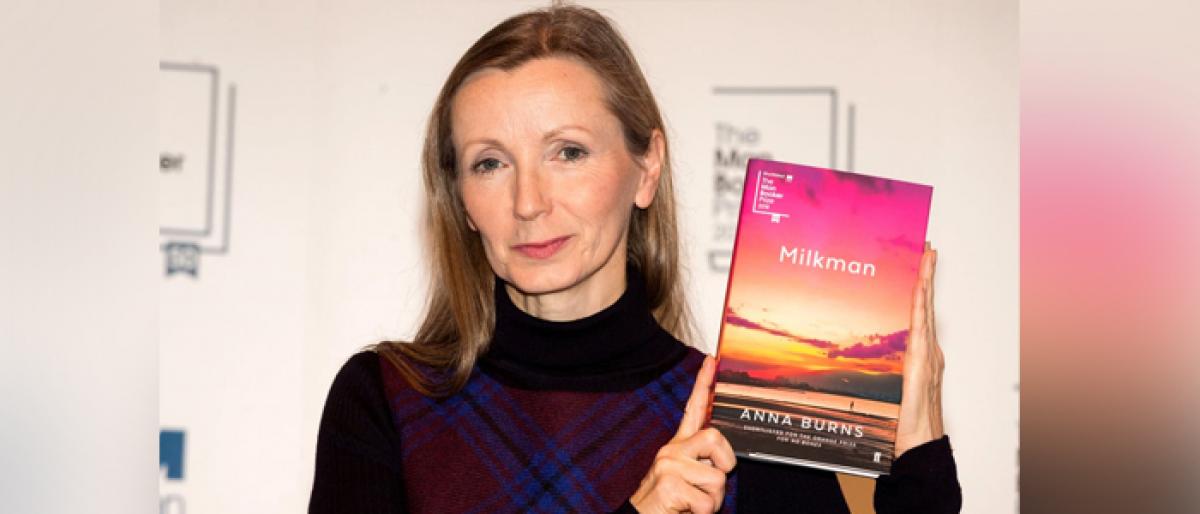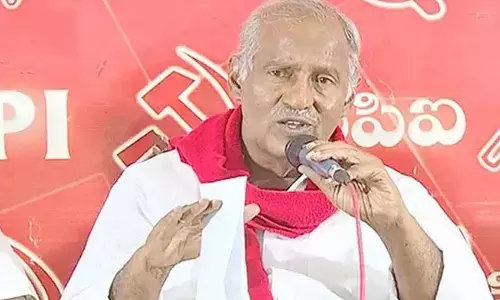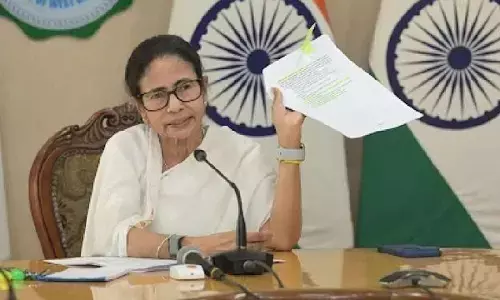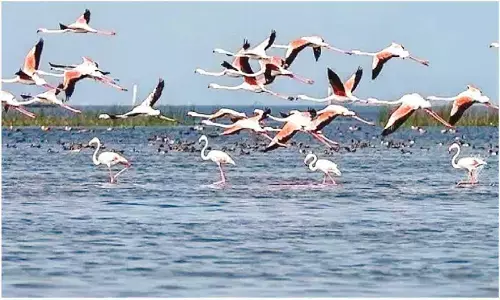Anna Burns wins 50th Man Booker Prize for 'Milkman'

Anna Burns from Northern Ireland has won the 2018 Man Booker Prize for her third novel Milkman She won the much coveted 50,000 pound award for her timely, troublesset novel about a young woman being sexually harassed by a powerful man
London: Anna Burns from Northern Ireland has won the 2018 Man Booker Prize for her third novel "Milkman". She won the much coveted 50,000 pound award for her timely, troubles-set novel about a young woman being sexually harassed by a powerful man.
Burns, 56, became the first Northern Irish winner of the award and accepted the prize at a ceremony at Guildhall here late on Tuesday.
She is also the first female winner since 2012, when Hilary Mantel took the award with "Bring Up the Bodies".
Booker's chair of judges, the philosopher Kwame Anthony Appiah, said that the novel is "incredibly original".
"Milkman" is narrated by an unnamed 18-year-old girl, known as "middle sister", who is being pursued by a much older paramilitary figure, the milkman.
"None of us has ever read anything like this before," said Appiah, announcing the prize.
"Anna Burns' utterly distinctive voice challenges conventional thinking and form in a surprising and immersive prose. It is a story of brutality, sexual encroachment and resistance threaded with mordant humour."
Written in lengthy blocks of paragraphs, eschewing character names for descriptions, Appiah admitted that "Milkman" could be seen as "challenging, but in the way a walk up Snowdon is challenging. It is definitely worth it because the view is terrific when you get to the top," he said.
Previous Irish winners, including John Banville, Anne Enright and Roddy Doyle, all come from the Irish Republic.
Burns beat writers including American literary heavyweight Richard Powers, Canadian Esi Edugyan and Daisy Johnson, at 27 the youngest author ever to be shortlisted for the award.
According to Appiah, the judges, picking from a shortlist that delved into some dark themes, were "unanimous" in their choice of winner -- and not influenced by concerns that picking a third American winner in a row could cause controversy.
Burns, who was born in Belfast and now lives in East Sussex, drew on her own experiences growing up in what she called "a place that was rife with violence, distrust and paranoia".
As the milkman presses his advances on the reluctant middle sister, rumours begin that she is having an affair with him.
Milkman also spoke to the concerns of today, Appiah said. "I think this novel will help people think about #MeToo ... It is to be commended for giving us a deep and subtle and morally and intellectually challenging picture of what #MeToo is about."
First awarded in 1969, the Man Booker Prize is recognised as the leading award for quality literary fiction written in English.
Its list of winners includes many of the giants of the last five decades, from Salman Rushdie to Margaret Atwood, Iris Murdoch to J.M. Coetzee.
The prize has also recognised many authors early in their careers, including Eleanor Catton, Aravind Adiga and Ben Okri.
No Indian authors were longlisted or shortlisted for the 50th edition of the prize.
Anna Burns from Northern Ireland has won the 2018 Man Booker Prize for her third novel "Milkman". She won the much coveted 50,000 pound award for her timely, troubles-set novel about a young woman being sexually harassed by a powerful man.
Burns, 56, became the first Northern Irish winner of the award and accepted the prize at a ceremony at Guildhall here late on Tuesday.
She is also the first female winner since 2012, when Hilary Mantel took the award with "Bring Up the Bodies".
Booker's chair of judges, the philosopher Kwame Anthony Appiah, said that the novel is "incredibly original".
"Milkman" is narrated by an unnamed 18-year-old girl, known as "middle sister", who is being pursued by a much older paramilitary figure, the milkman.
"None of us has ever read anything like this before," said Appiah, announcing the prize.
"Anna Burns' utterly distinctive voice challenges conventional thinking and form in a surprising and immersive prose. It is a story of brutality, sexual encroachment and resistance threaded with mordant humour."
Written in lengthy blocks of paragraphs, eschewing character names for descriptions, Appiah admitted that "Milkman" could be seen as "challenging, but in the way a walk up Snowdon is challenging. It is definitely worth it because the view is terrific when you get to the top," he said.
Previous Irish winners, including John Banville, Anne Enright and Roddy Doyle, all come from the Irish Republic.
Burns beat writers including American literary heavyweight Richard Powers, Canadian Esi Edugyan and Daisy Johnson, at 27 the youngest author ever to be shortlisted for the award.
According to Appiah, the judges, picking from a shortlist that delved into some dark themes, were "unanimous" in their choice of winner -- and not influenced by concerns that picking a third American winner in a row could cause controversy.
Burns, who was born in Belfast and now lives in East Sussex, drew on her own experiences growing up in what she called "a place that was rife with violence, distrust and paranoia".
As the milkman presses his advances on the reluctant middle sister, rumours begin that she is having an affair with him.
Milkman also spoke to the concerns of today, Appiah said. "I think this novel will help people think about #MeToo ... It is to be commended for giving us a deep and subtle and morally and intellectually challenging picture of what #MeToo is about."
First awarded in 1969, the Man Booker Prize is recognised as the leading award for quality literary fiction written in English.
Its list of winners includes many of the giants of the last five decades, from Salman Rushdie to Margaret Atwood, Iris Murdoch to J.M. Coetzee.
The prize has also recognised many authors early in their careers, including Eleanor Catton, Aravind Adiga and Ben Okri.
No Indian authors were longlisted or shortlisted for the 50th edition of the prize.











